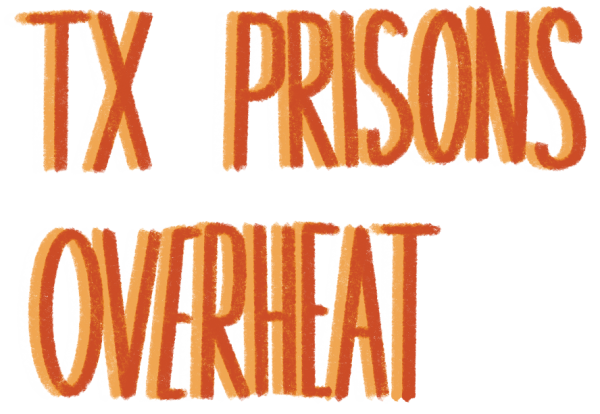Issue 2 staff stance: It should be a hard “NO” on Kavanaugh
October 15, 2018
Judge Brett Kavanaugh remains President Donald Trump’s nominee for the Supreme Court of the United States despite serious concerns about the thoroughness of the Senate Judiciary Committee’s vetting process, his judicial views, and his character. His Supreme Court confirmation hearings concluded Sept. 7 and Kavanaugh was largely successful in dodging Senators’ attempts to get him to clarify how he might rule on issues that might come before him as a justice.
Nevertheless, their lines of questioning made crystal clear what hangs in the balance. At stake is oversight of a President who actively talks about pardoning individuals who face conviction for felony crimes which implicate him. Also at risk is women’s access to abortion, which the World Health Organization has defined as a fundamental human right.
Moreover, news broke the weekend of September 14 of a credible allegation of sexual misconduct by Kavanaugh during his high school years. Christine Blasey Ford, professor of clinical psychology at Palo Alto University in California, detailed an alleged attempted rape by Kavanaugh. This raises new concerns regarding his nomination and further clouds the timeline of Kavanaugh’s confirmation.
Proponents of Kavanaugh point to the substantiveness of his resume. He went to Yale Law School, served on the D.C. Court of Appeals, clerked for Supreme Court Justice Anthony Kennedy, and issued opinions for almost 300 cases while on the federal bench. However, if Supreme Court nominees were confirmed simply based on the adequacy of their resume, then Obama’s 2016 nomination of Justice Merrick Garland would have been a home run. In that instance, Republican Senate leaders refused to hold a vote on his nomination until after the 2016 Presidential election stating concerns regarding the “legitimacy” of confirming the choice of a lame duck President. Garland’s nomination lingered for 293 days before the Senate, a record length, according to the Wall Street Journal. Soon after Trump’s inauguration, the President nominated the conservative justice Neil Gorsuch to the bench and he was successfully confirmed in 2017.
This time around, Democratic members of the Senate Judiciary Committee asked to delay consideration of Kavanaugh’s nomination until Robert Mueller’s findings in his investigation into Russian interference in the 2016 Presidential elections are released. These calls were rejected. Kavanaugh’s consistent record of partisan purity in his rulings and public statements regarding executive power are both gravely concerning and patently inappropriate for a Supreme Court Justice. In fact, according to a July AP report, Kavanagh has questioned the validity of the decision in the landmark case U.S. v. Nixon, which found that even a president cannot withhold information in a criminal prosecution. While President Trump surely likes what this portents for his future, we at the Liberator realize what is on the line for our democracy. We call on our peers to add their voices to the swelling ranks of our fellow citizens who urge senators to look beyond party lines in their consideration of a candidate’s suitability as a Supreme Court Justice.
Additionally, while Kavanaugh referred to Roe v. Wade, the landmark 1973 ruling legalizing abortion, as “precedent on precedent” in his confirmation hearings, he clearly knows full well that an accumulation of new rulings can establish a new precedent. And Kavanaugh has signalled his willingness to roll back abortion rights in this piecemeal way. In the 2017 case Garza v. Hagan, Kavanaugh wrote the panel decision blocking a 17-year-old being held in immigration custody from seeking an abortion. In the 2015 case Priests For Life v. HHS, while the full court denied a rehearing of the decision to uphold the Affordable Care Act’s contraceptive coverage mandate, Kavanaugh dissented. He argued that access to birth control is secondary to the imperatives of so-called religious freedom.
The Supreme Court is likely to take up cases in the next term that address the legitimacy of state laws that restrict access to abortion via the imposition of regulations that make it impossible for clinics that provide abortion care to operate. It may also hear cases that seek to prohibit abortions earlier and earlier in pregnancy. Brett Kavanaugh could well be the deciding vote in these cases, which could have the net effect of gutting Roe v. Wade and radically undermining women’s bodily autonomy. This was a campaign promise the President made to his base numerous times. He declared at a 2016 presidential debate that Roe v. Wade would be overturned “automatically” upon his election given his ability to nominate Supreme Court Justices sympathetic to that ambition.
Kavanaugh’s nomination is a product of a President’s evident misogyny, impulses towards self-preservation and political posturing. Regardless of the outcome of the confirmation proceedings, we at the Liberator repudiate his candidacy, and, for that matter, the candidacy of any nominee under these circumstances.








